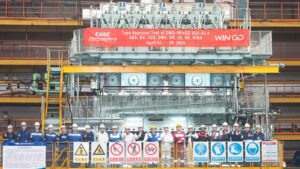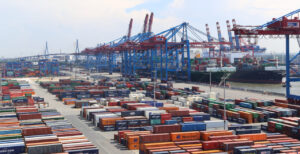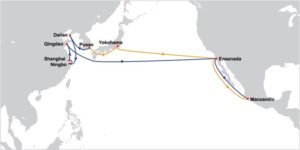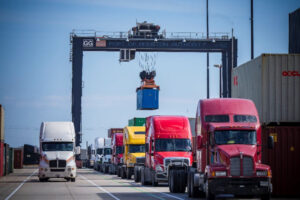Negotiators have made significant progress towards a bargaining agreement to end the dispute between striking Canadian dockworkers and their employers, according to Labor Minister, Seamus O’Regan.
As reported by Bloomberg, O’Regan has authorised a mediator to expedite the process of reaching a final agreement between the conflicting parties.
The strikes, rooted in a wage dispute and a felt lack of recognition, have not only hindered exports of highly demanded commodities and imported shipments of manufacturing materials, but it has also affected the trade flow in the US, and the North American supply chain at large.
In a tweet posted on 12 July, O’Regan said: “After 11 days of a work stoppage, I have decided that the difference between the employer’s and the union’s positions is not sufficient to justify a continued work stoppage.”
“As a result of the hard work by the parties at the bargaining table, there is a good deal within reach – one that would work for both the employer and the union.”
Thanks to the hard work by the BCMEA & the ILWU at the bargaining table, there is a good deal within reach.
— Seamus O'Regan Jr (@SeamusORegan) July 12, 2023
My statement on the negotiations: pic.twitter.com/Wj53pknS4S
O’Regan further said he has asked the senior federal mediator for a written recommendation of terms of settlement within 24 hours, which O’Regan will then forward to the negotiating parties.
Both parties, the International Longshore & Warehouse Union (ILWU) Canada and the British Columbia Maritime Employers Association (BCMEA), will have 24 hours to decide “whether or not to recommend ratification of the terms to their principals”.
READ: Canada West Coast port labourers call to strike in unanimous vote
Bloomberg has reported that the Canadian Manufacturers & Exporters trade association has estimated that the port disruptions have cost up to C$500 million ($379 million) of trade per day. It also claimed that these events would have a cascading effect that will be felt worldwide.
British Columbia is gearing up for a significant period in its food export industry, while Canada maintains its status as the global leader in potash production.
The Port of Vancouver is also a key hub for imports of consumer goods from Asia, according to Bloomberg.
A survey by the Canadian Federation of Independent Business published on 11 July found that about half of business owners said the strike would affect their operations.
READ: Looming ILWU Canada’s strikes threaten supply chain once more
Amid the strikes, US West Coast port union workers have refused to operate on containerships that were diverted from the striking ports in Canada’s West Coast.









